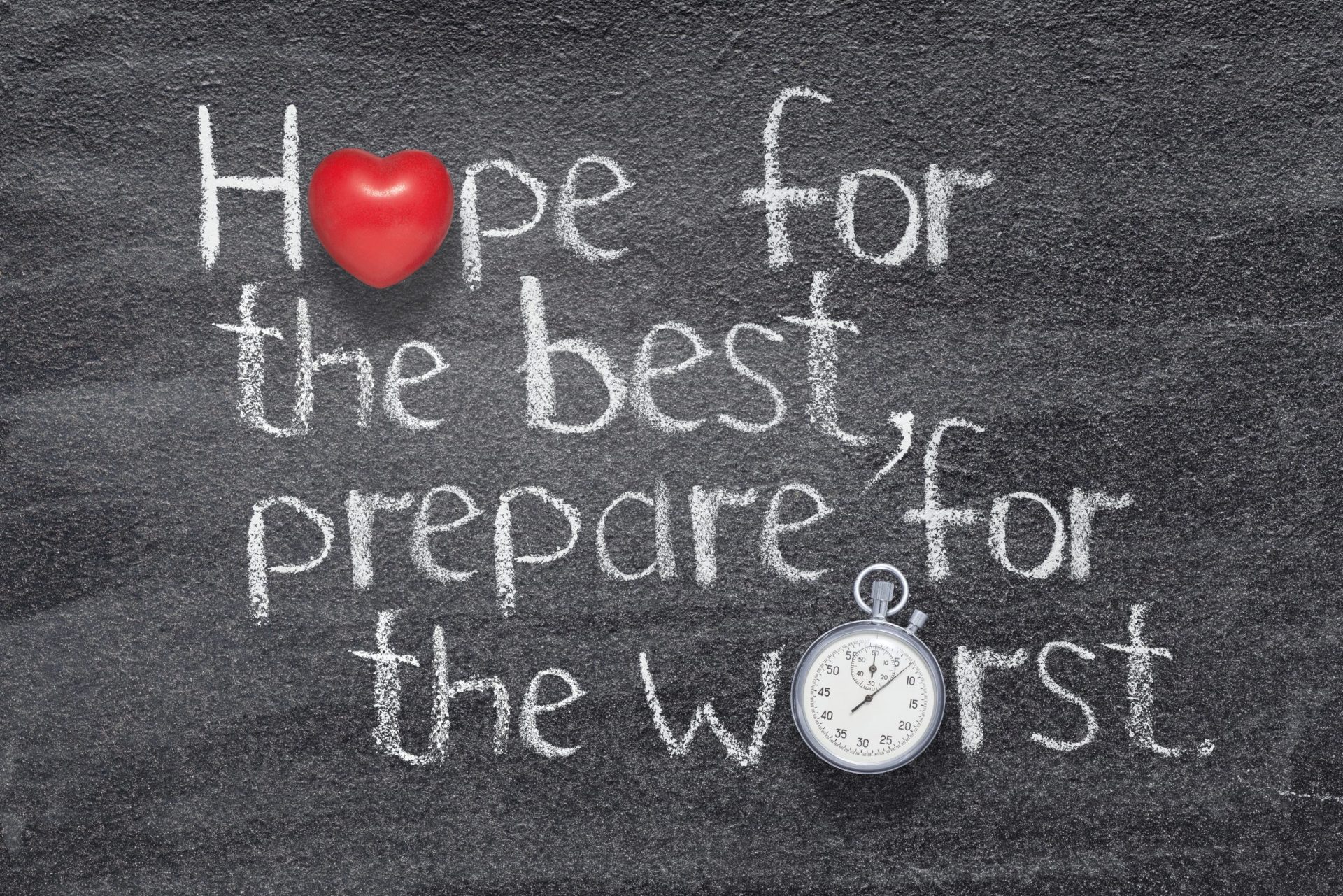What’s the worst that can happen?

A few weeks back, after a pretty full-on time publishing my book, launching a new programme and doing a website refresh, I undertook a Worry Review.
I wrote a list of all the things that I’d worried about that had happened and all the things that hadn’t happened. Guess how many on the first list? One. The second list? A lot.
We’re good at worrying. Our inbuilt negativity bias means around 80% of our thoughts are negative.
Yet one piece of research found that 85% of what we worry about never happens.
What’s more, of the 15% of worries that did happen, 79% of the research subjects discovered they could handle the challenge better than they anticipated, or learned a valuable lesson from the experience.
That means that 97% of our worries are just the product of unfounded pessimism, in other words, expecting bad things to happen without evidence and for no good reason.
Mark Twain summed it up when he said, “I have been through some terrible things in my life, some of which actually happened.”
However, while being pessimistic is a pretty thankless pastime, I’d like to introduce you to a strategy called defensive pessimism.
Defensive pessimism has been proven to help people who are anxious not only increase their confidence but be more successful than common or garden pessimists.
Ever used the phrase, “What’s the worst thing that can happen?”.
Well, it’s along those lines. It’s not just about expecting bad things to happen (pessimism), but reflecting on why you expect bad things to happen and what you can do to avert perceived (that word is important) disaster.
Mo Gawdat provides a useful step by step guide in his fantastic book, “Solve for Happy”.
Want to give it a try?
Consider something you want or need to do but are worried about. Ask yourself the following questions :
- Question 1 : What’s the worst thing that can happen if I go through with this? Keep going until you get to the absolute worst. For example, afraid of presenting in front of a large audience? Your ultimate fear may be that they’ll laugh you off the stage.
- Question 2 : So what? If you’re laughed off the stage, will you lose your job? Will you lose your home? Will your life end?
- Question 3 : How likely is it that this worst-case scenario will happen? Has it ever happened to you, or have you seen it happen to someone else? The evidence is likely to speak for itself.
- Question 4 : Is there anything you can do now to prevent this (unlikely) scenario? It might be throwing yourself into preparation – scripting it, rehearsing and getting presentation coaching. This step is where defensive pessimism proves its worth because you do everything you can to avoid a negative outcome and create the conditions for a positive one. There’s a great quote from an SAS soldier Adam O’Connell, “At times of heightened action, we don’t rise to the occasion, we fall to the level of preparedness.”
- Question 5 : Can you recover? If that really unlikely scenario comes to pass and you do get laughed off the stage and lose your job, can you recover from it? (Clue : yes, you can.)
- Question 6 : What will happen if you do nothing? Taking action is almost guaranteed to minimise your fear.
- Question 7 : What’s the best-case scenario? If this presentation goes really well, what’s the benefit? I’m pretty sure it will be worth you being brave and facing your fear.
In Mo Gawdat’s words, “Face your fears, one by one, and wipe them out of existence. They were never real anyway.”
What do you think? Drop me a line at alison@alisonreid.co.uk.
Alison Reid is an experienced executive coach who helps new Directors lead with confidence and step-change their influence and impact. She works with them 1-1, empowering them to focus on what matters, communicate with impact and stay calm under pressure so they can lead themselves and others to great results. She's the author of Unleash Your Leadership : How to Worry Less and Achieve More. Download an extract or buy the book.
Sign up to her mailing list to receive blogs like these direct to your inbox.
